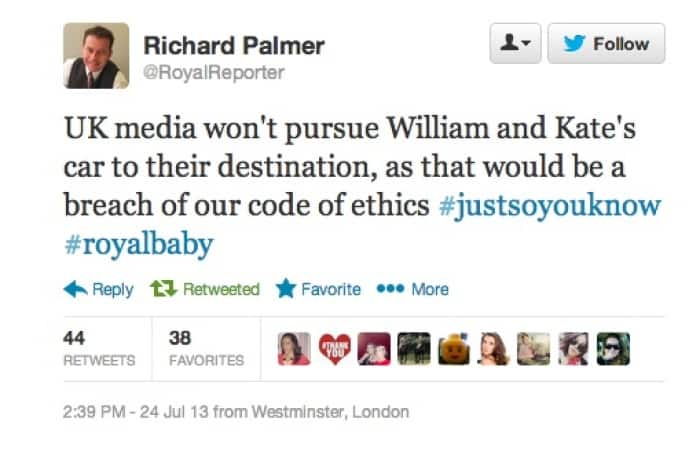Now Here’s Some Good News: Ethical Journalism In Action
By Stefanie Chernow
A search for “media ethics” on Twitter will normally show just how much of a challenge it is fight for standards in journalism. In the last few days there have been a couple of examples of the dark side of media and journalism – from Pakistan where babies are being giving away on prime time TV to Turkey where the journalist and ombudsman Yavuz Baydar was fired by his bosses in a country where media thought it best to broadcast documentaries about penguins instead of reporting the recent Taksim Square riots. It’s little wonder that today many people find the notions of media ethics hardly credible.
Yes, media have a long way to go, but it’s not all bad news and ethical journalism is not dead. Far from it. Thousands of journalists around the world take risks every day, diligently follow the rules of their craft, and strive to do good work. And not all media companies are money-obsessed or traitors to the cause of journalistic mission.
Indeed, there are reasons to be cheerful and to make the point we are highlighting here some of the examples of regular journalism where standards count more than ever and how the movement to realise the ideals of self-regulation, transparency, and good governance is winning through. Here are some examples of good journalism practices in the last week:
According to Bob Dietz from the Committee To Protect Journalists, The Afghan Journalists Federation has been holding its ground as an organisation despite growing pressures from national and international bodies. “There are still plenty of problems to address in the present, and what I’ve found is that Afghan journalists are increasingly confronting them on their own,” writes Dietz. The group was also able to critique a media bill in collaboration with the government.
C-Ville Weekly, a newspaper in Virginia, changed its policy to no longer include sexist, racist, or hate speech. The change was sparked by public protest against the publishing of an anonymous “rant” targeting the African American community. “We regret the error and we apologize for the hurt it caused. Our readers demand a higher standard from their community paper,” says Giles Morris, Editor-in-Chief of the publication. Why the hate speech was allowed in the first place remains a mystery, but it is better to implement necessary changes now than never….
Reporter Richard Palmer tweeted that his ethical standards are above the UK’s baby fever:

In the name of transparency, NPR ombudsman blog recently published an article exploring its own regional bias. While the conclusion was most stories are centred around Washington DC, NRP ombudsman Edward Schumacher-Matos asserted “Editors and reporters have to keep making that extra effort to find stories and Americans in the great heartland, and to beware of becoming self-satisfied, particularly from a cubicle inside Washington.”
And finally, the Center for International Media Ethics (CIME) is hosting its third annual International Media Ethics Day on September 20, 2013. The event will gather journalists from around the world and will spark debate around media ethics through different case studies and regional activities. More information about how to get involved can be found on the CIME website.
Watch this space. There will be more good news to come.